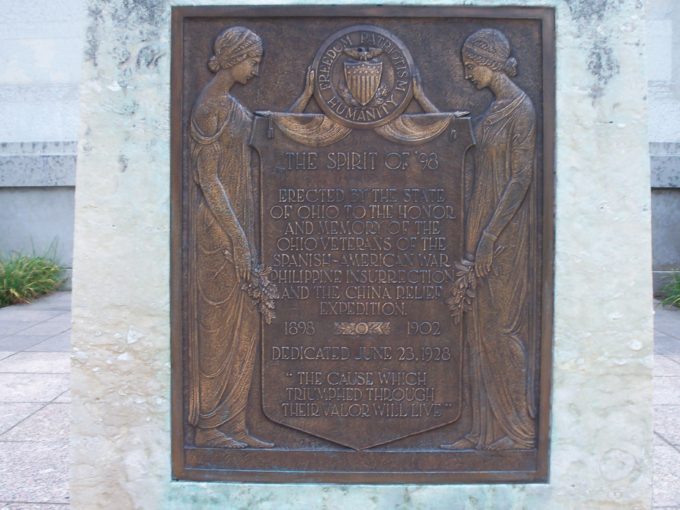
Saturday, 11 January 2020
For he who lacks these things is shortsighted, even to blindness, and has forgotten that he was cleansed from his old sins. 2 Peter 1:9
Over the past four verses, Peter has developed a case concerning proper growth in Christ. In the previous verse, he gave positive reasons for this (being neither barren nor unfruitful in the knowledge of the Lord). He now he presents a negative reason which will result if what he has instructed is not adhered to. To set the stage for that, he says, “For he who lacks these things.” The Greek literally reads, “To whom these things are not present.” Vincent’s Word Studies explains –
“Note that a different word is used here from that in 2 Peter 1:8, are yours, to convey the idea of possession. Instead of speaking of the gifts as belonging to the Christian by habitual, settled possession, he denotes them now as merely present with him.”
In other words, the things that Peter recommend being done were viewed as actual possessions of the wise person who followed his instruction. However, the person who fails to do so, not only does he not possess them, they are not even available to him. Their presence, for him, is nonexistent. It is reflective of the opening chapters of Proverbs where wisdom calls out. The one who listens will benefit, the one who fails to listen will suffer.
Peter now says what the state of such a person is when his recommended course of action was not heeded, beginning with the thought that he “is shortsighted.” The Greek word, found only here in Scripture, is muópazó. It is the basis for our modern word “myopic.” It is a compound word which comes from the Greek words musterion (a mystery) and ops (the face – which is the root of optanomai – appearing). Thus, it means that the person cannot see far off. This is then used in a spiritual sense by Peter. He is unperceiving of his own spiritual state.
Peter then says, “even to blindness.” The word is commonly used, and it can mean both literal blindness, such as in Matthew 20:30, or spiritual blindness, such as in Matthew 23:16. In this case, Peter is equating the person in a spiritual sense to someone who is so myopic that he is – for all intents and purposes – blind. Peter is emphasizing sight as a metaphor for the instruction which he gave in the previous verses. The instruction was ignored, and his sight now fails. Of these words, shortsighted and blind, Vincent’s Word Studies explains –
“The participle being short-sighted is added to the adjective blind, defining it; as if he had said, is blind, that is, short-sighted spiritually; seeing only things present and not heavenly things.”
Thus, this person sees only what is worldly and near, but not that which is of the highest importance. His spiritual sense is completely fogged over and, as Peter says, he “has forgotten.”
The words, “has forgotten,” fail to convey the Greek. It is a noun. More literally, it is translated as “having taken forgetfulness.” It is as this person has voluntarily picked up the state of forgetfulness and now carries it with him. Because he voluntarily failed to do what Peter says, and because his hands were empty and needed to be filled with something, he picked up this trait and now carries it around with him. And that by which he has taken up forgetfulness is “that he was cleansed.”
Again, the translation is lacking. Peter again uses a noun to describe the state, saying, “the cleansing.” The person has taken up forgetfulness that he had “the cleansing.” The Greek word speaks of purification, and most directly from moral impurity, meaning sin. For example, it is the same word used in Hebrews 1:3 –
“…who being the brightness of His glory and the express image of His person, and upholding all things by the word of His power, when He had by Himself purged our sins, sat down at the right hand of the Majesty on high,”
And this is exactly what is on Peter’s mind as he finishes the thought with, “from his old sins.” In other words, this person, who failed to pay heed to the words Peter lays out for instruction, has forgotten that He was saved by Jesus and was forgiven his sin through Christ’s atoning sacrifice. It has been argued that “past sins” means that only his past sins were forgiven, but not his future sins. The stupidity of that shows a bias against the doctrine of eternal salvation, which Peter has already argued for. It further speaks against the efficacy of the cross of Christ to forgive all sin.
And more, Paul states that in Christ, believers are no longer under law, but under grace. Because of this, and because it is by law that there is a knowledge of sin (Romans 3:20), and thus sin is imputed through law, then believers are no longer imputed sin (Romans 5:13 and 2 Corinthians 5:19).
What Peter says here is not an argument for temporary salvation, but for eternal salvation. A person who is forgiven by Christ and saved can actually forget that he was once saved, but God has not forgotten. The individual has been saved, and he remains saved – despite his own shortsightedness. Praise God for His infinite mercy.
Life application: All believers should remember the substance of 2 Peter 1:9, and they should remember where the verse is.
Peter went through a list of eight things we should apply to our lives in order to grow so that we will be “neither barren nor unfruitful in the knowledge of our Lord Jesus Christ.” Those eight things are faith, virtue, knowledge, self-control, perseverance, godliness, brotherly kindness, and love. By growing in these attributes, we are molded into Christ’s likeness as we are sanctified by the Spirit of God.
Peter’s words acknowledge, quite clearly, that believers are saved, washed, and clean. The blood of Jesus has covered, and will cover, every failing they have. It is fully capable of both saving and keeping the believer safe – despite his own blindness.
Lord God, Your word says that we can go so far away from you that we forget we have even been saved by Christ Jesus and washed in His purification from sin. But You do not forget. Once a person has come to You in faith, a new state is seen where sin is no longer counted against us. Thank You, O God, that we have the surety of eternal salvation, despite our own shortcomings, even to blindness of our forgiven state! Thank You for the work of Jesus on our behalf. Amen.




